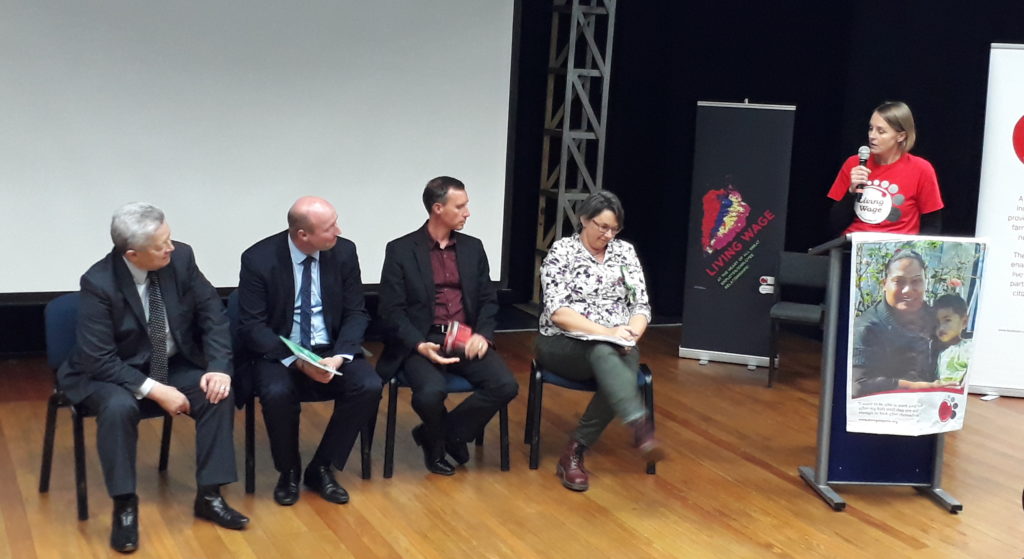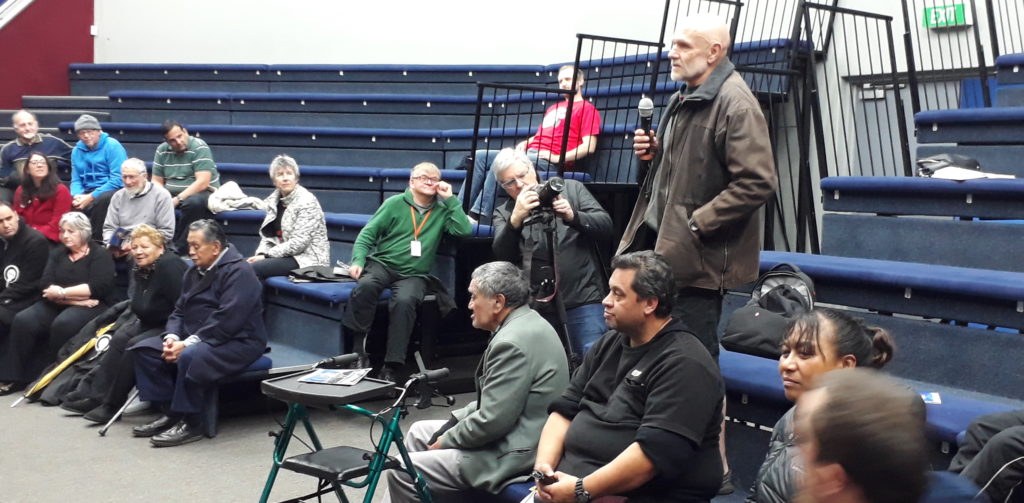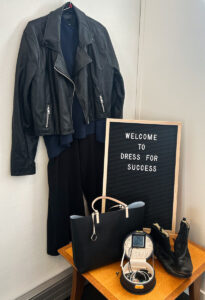Living wage debate gets heated
Three parties supported a living wage for New Zealanders, one did not.

The living wage debate held at Fairfield Intermediate last night got the audience of about 30 people riled up as National MP David Bennett refused to comment on National’s stance on the living wage.
The living wage is $20 an hour.
Annie Newman from the National Living Wage Movement said New Zealanders were struggling on minimum wages, and the country could afford to pay more.
“We’ve got the money, it’s the will and the leadership,” Newman said.
Pita Paraone from NZ First, Jamie Strange from Labour, and Jo Wrigley from the Greens all support the living wage.
But Bennet said the living wage could negatively affect New Zealand’s economy, and said people who want to get higher pay can get an education.
“There are problems with how it could be promoted,” Bennett said.
Strange said Labour would support a living wage for all people in the public sector.
“Labour is committed to a high performing economy,” said Strange, who was on minimum wage while studying.
Jo Wrigley said the Greens are a long-time supporter of the living wage and said workers need protection under the law.
“Research has been done on what it costs to participate in society,” said Wrigley.
David Bennett’s refused to answer whether national would support a living wage, which riled up the audience.
“Stand up for your principles and tell much how much inequality is okay,” yelled one aggravated audience member.
Bennett laughed and said inequality cannot be measured.

Strange said the economy had changed and we need to keep up with that.
“There’s talk about a rock star economy but not everyone’s been invited to the show,” said Strange.
After the debate, a DHB worker who did not want to be identified felt that the living wage was needed for those at Waikato hospital.
“We support the living wage movement and we would like to see our manager support us in that endeavour.”
The worker said a living wage means they could support their children, so they could get an education and have a more meaningful impact in society.
City councillor Dave McPherson said the lowest paid Waikato’s DHB workers currently get paid 16 times less than the CEO, compared to the Council, where the lowest paid workers get 13 times less than the CEO.




